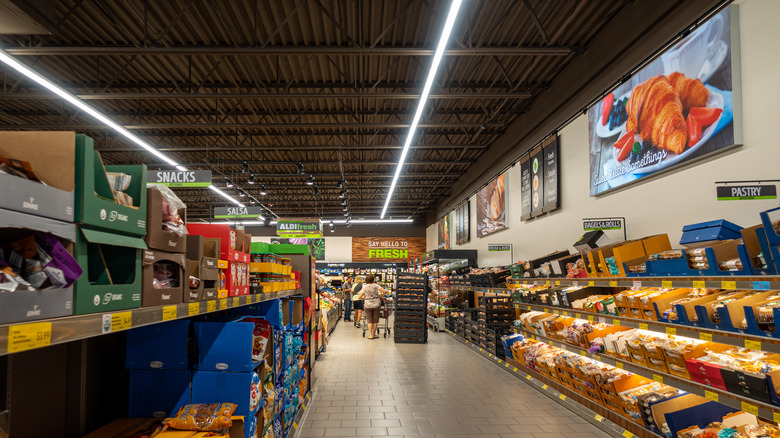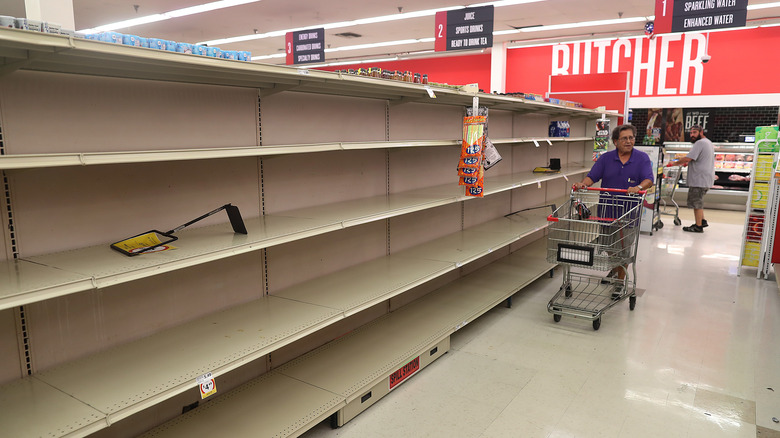Aldi Is Making Big Moves To Expand In The Southeast
Aldi, the German-based supermarket chain known for its inexpensive groceries (and the reason many people have a special Aldi quarter), is buying up 400 existing grocery store locations in the Southeast. The company announced Wednesday that it had closed a deal with Winn-Dixie, a beleaguered grocery chain headquartered in Jacksonville, Florida, to acquire both Winn-Dixie and Harveys Supermarkets stores across Georgia and Alabama, plus Florida, Mississippi, and Louisiana. This expansion is in addition to the 120 new stores it's adding in 2023; the full transaction with Winn-Dixie should go through in early 2024 and will bring the number of U.S. Aldi locations to more than 2,700.
Aldi launched its first Southeast store in the '90s. In the subsequent three or so decades, the brand has introduced over 340 stores along the Gulf Coast. In January of 2023, it opened its sixth southern headquarters in Loxley, Alabama, which supports 100 of its stores in Louisiana, Alabama, Mississippi, and the Florida panhandle. The most recent announcement didn't address whether Aldi will add more regional headquarters to support the expansion or if existing ones will support the new stores.
This acquisition will more than double Aldi's presence in the region, but not all stores will transition to Aldis immediately. According to Aldi CEO Jason Hart, locations are being evaluated for conversion to "the Aldi format to better support the neighborhoods we'll now have the privilege of serving," and any that aren't converted will continue to operate as Winn-Dixie stores.
For Winn-Dixie, rocky road isn't just ice cream
Winn-Dixie has had a rocky history, and this buy-off isn't the first of its kind for the supermarket chain. The first store was opened in 1925 and moved its headquarters to Jacksonville, Florida, in 1939, and Harveys grocery opened in 1924 — both are now subsidiaries of Southeastern Grocers. The acquisition of Winn-Dixie occurred in 2012, back when Southeastern Grocers was known as Bi-Lo. It wasn't the first sign of financial trouble for the grocery store, and it wouldn't be the last.
In 2002, Winn-Dixie closed all of its stores in Texas and Oklahoma. Meanwhile, 2004 saw it closing all of its stores in the Midwest and 45 others, and by the end of the year, it had sold 10 stores to Food Lion. Early in 2005, the company filed for bankruptcy; though Winn-Dixie claimed it would keep all of its 920 stores open, it ended up closing over ⅓ by June. The following year, BK Foods acquired all 12 of Winn-Dixie's stores in the Bahamas. It wasn't until 2012 that the brand sold in its entirety to Bi-Lo, now Southeastern Grocers. In February 2018, Southeastern Grocers closed 200 stores; by March, it announced it was filing for Chapter 11 bankruptcy and closed 94 more stores. Now, in 2023, it is selling 400 of its remaining stores to Aldi, which favors a lean operating model. Maybe this time, it'll stick.

